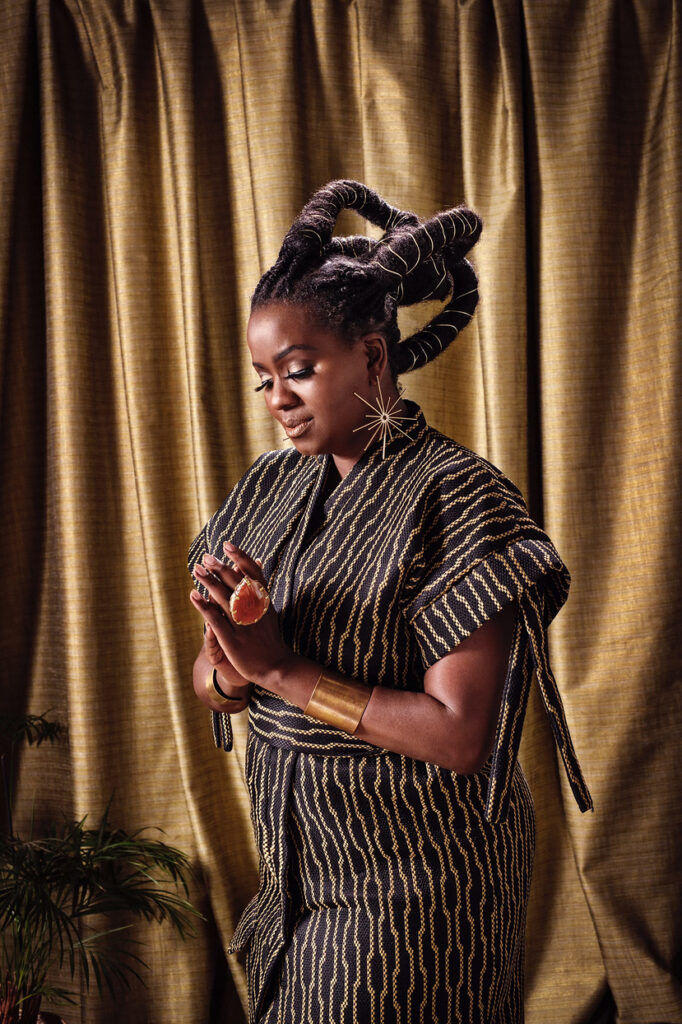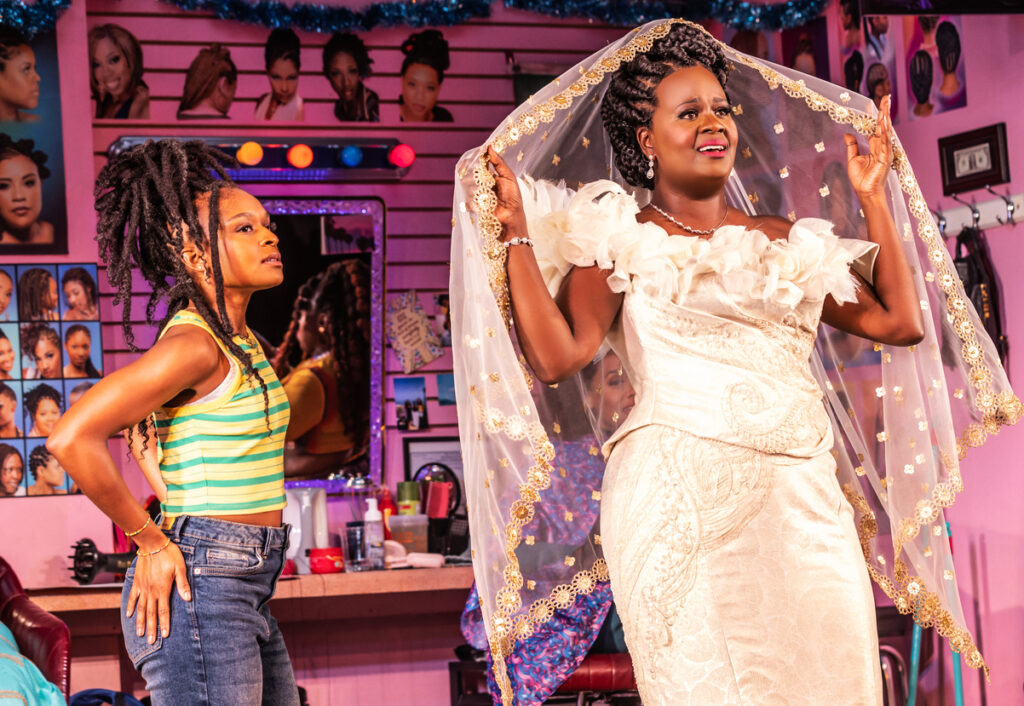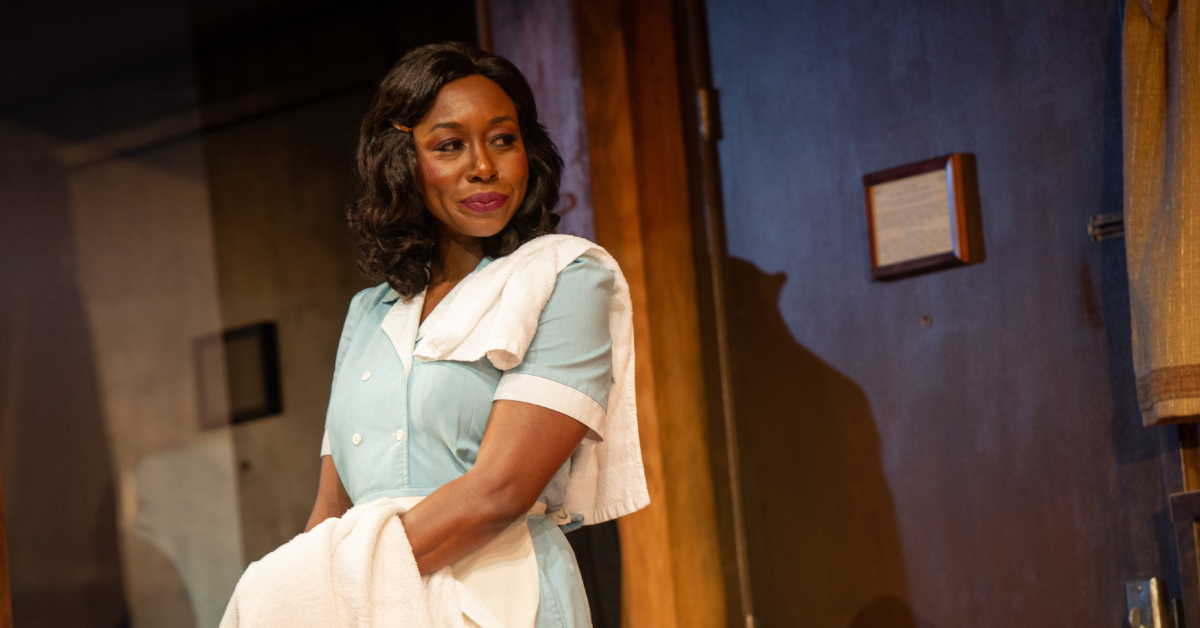Somi Kakoma Is a Virtuosic Storyteller
Somi Kakoma is a Grammy-nominated and NAACP Image Award-winning Jazz vocalist, composer, writer, and actress who transcends the global music industry. The daughter of Ugandan and Rwandan immigrants, she takes pride in being a Midwestern New Yorker who is proudly East African and a world citizen. We sat down with Somi to discuss her career and impeccable artistry.
Mhonaé: Did you choose music, or did music choose you?
Kakoma: I always feel like the art, the music, or whatever you’re doing chooses you. You do have to get to a point where you’re willing to say yes to your gift, but whatever your gift is in this life, it’s already calling you.
Mhonaé: How would you define yourself as an artist?
Kakoma: Witness and seeker. I am always interested in being a witness in using art, language, music, and storytelling to understand and bear witness to the world around me. Also, I am very interested in creating art that invites a deeper awareness of my cultural and spiritual self. As a seeker, I am interested in walking the path, discovering more about myself and others, and finding truth along the way.
Mhonaé: What is your process for creating your music?
Kakoma: I studied anthropology as an undergraduate, which is very much in line with what I do as a witness. In terms of my music, I invested in these ethnographic surveys over time. So, if you listen to the “Lagos” record, I spent 18 months in Nigeria. I didn’t go there to write an album. I went there for some personal reasons and to teach. I wrote about my experience there because I am interested in place and how to invite people to journey with me. So, I would find myself recording conversations with locals, street sounds, and conversations with immigration officials at the airport. Then, I would figure out how to actually articulate that through music.
Kakoma (cont.): I was also journaling and writing poetry a lot, and those entries evolved into songs and a song cycle where there was a theme, a place, and people. Then, that was the first time music critics talked about the work being part ethnography and part music-making. I thought, ‘Oh wow! Finally, my anthropology is showing up in some unexpected ways.’ My record “Petite Afrique” was about African immigrants in Harlem. As a Harlem resident, I was writing about the gentrification of Harlem, and I was thinking about how these lives and their contributions to the city were being erased after 40 years. Essentially, my process of making songs and albums starts with witnessing, and those things usually evolve into an inspired offering of song, story, or both.

Mhonaé: How does it feel to be a positive representation of your East African culture and an inspiration to girls and women?
Kakoma: I can only hope that that is the case and, if so, that they choose to listen to their hearts and the gifts that are calling them. I always hope that people can find the courage to be their whole selves, and if my journey inspires them to do that, then I’m grateful and humbled. It makes it feel as though the work is not in vain.
Mhonaé: What was the inspiration behind establishing your agency and label?
Kakoma: Initially, it started as a selfish endeavor because when I started, there were not a lot of African artists in the mainstream music space or any music space. So, when I was starting, people wanted me to quiet that side of myself. I felt like I had to compartmentalize my American self from my African self. Even though I feel very much American, I strongly identify as an African woman. I started producing these shows where the only commonality between us was we were all from the continent. People would attend these shows for the community, knowing they would see themselves on these stages. By “people,” I mean other Africans living in the city. We were all operating in this world music space, but nothing spoke to our generation. So, it started from a place of helping people understand why what I was doing was a part of something larger than myself. I continued to do that work, which has evolved over time.
Kakoma (cont.): Salon Africana is about inviting people into an intimate way of seeing and knowing what is actually happening on the ground, particularly with jazz music on the continent, but also experimental and alternative forms of music making. As far as the label side of it, I put my last two albums out through the label because after I left Sony, I was very clear that the digital age offers more agency and independence to artists like me.
Mhonaé: What advice would you give to aspiring musicians?
Kakoma: To follow their hearts and be honest with the music.
Somi Kakoma is currently making her Broadway debut in the highly anticipated play Jaja’s African Hair Braiding by Jocelyn Bioh and produced by Taraji P. Henson. The show opened at the Manhattan Theatre Club in New York, New York on October 3 and is offering live-stream showings from Tuesday, November 14, to closing on Sunday, November 19.







